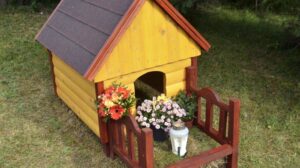
Best Dog Breeds for Seniors: Finding the Most Suitable Companions
Dogs are a great way to enrich the lives of older people. They provide companionship, loyalty and more activities in daily life. Some dog breeds, however, are more suitable for older people than others. These tips will help you to choose the right dog for your elderly loved ones.
General, dogs that are calmer tend to be more suitable for older people. This is because they don’t need as much action. Small to medium sized dogs are easier to maintain as seniors age because their strength diminishes.
Dogs that are older can be better suited to the elderly
It’s fun to have a puppy around, and they are always entertaining. But puppies still need to learn all the things a good dog should know. In the beginning, you will need to take the puppy outside every two hours for a while until he is housebroken. It is important to first teach him the basic commands. Mistakes in dog training can later be seen in dogs with unwanted behavior.
A dog that is older is often a better option for elderly people. It is already house-trained and has learned the most important commands. Also, its personality is more stable, making it easier to overlook small mistakes in training. Don’t worry about your dog becoming a beggar because you occasionally give him a piece of meat from the dinner plate. You know exactly what you’re getting when you choose older dogs. This allows you to select a dog that suits your personality, lifestyle and fitness level.
Shelter dogs for elderly people: benefits
Animal shelters are the main place to find adult dogs. It is usually harder for older dogs to find a loving home. Adopting an older dog at a shelter is a good thing. You should take your time and ask for detailed advice from shelter staff. They know their dogs very well, particularly if they have been waiting for their heart human longer. They can also give you some good advice on the right dog for you.
Breeders or private individuals can provide dogs for older people.
You can also find adult dogs from private individuals who are forced to give up their dog. You can also look through the Internet classifieds, but beware of dubious deals. You should call the owners if you find a quadruped which could be a good fit. Listen to your gut feeling. You can set up an appointment to meet the dog and learn more about it. It is helpful to bring a friend who you trust to the meeting so that you can feel more at ease and still get a second view.
You can also ask a reputable breeder of dogs if they have any adult dogs available to place. Breeders are usually very good at caring for their “charges”, even after they have been placed. They will also take them back, if the family is no longer able to care for them. The breeders then search for loving, responsible people to adopt the four-legged companions.
Calm and easy-care breeds of dogs for the elderly
There is nothing stopping you from staying loyal to your beloved dogs as you age, especially if they are gentle giants such as the Bernese Mountain Dog or the Leonberger. This is not a problem as long as you live near nature and have plenty of space in your home. It is hard for older people to keep up with dogs who are extremely active and love to run around. Many seniors are unable to offer employment that is species-appropriate for a Border Collie or Australian Shepherd, or a breed of hunting dog.
Small and medium-sized dogs that are companions and socializers are ideal for elderly people who have little or no dog experience, or those in poor health. Bichons, as well as related breeds like the Maltese and Havanese and Coton de Tulear, are good companions for seniors. Poodles are also good companions for senior citizens. The French Bulldog is a great dog for those who enjoy playing with their pet. Pugs are also a good choice for those who love to have fun. Pekingese are also social, as well as Shi Tzus Papillons Japan Chins Kromfohrlander Chihuahuas Cavalier King Charles Spaniels. Other terriers, such as the Boston Terrier and the Yorkshire Terrier, are also suitable.

